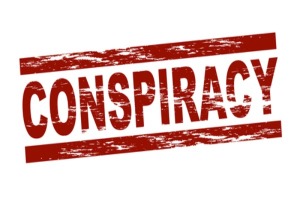The University of Miami’s College of Arts and Sciences and Political Science Department held what was likely the world’s first official academic Conference on Conspiracy Theories from March 12th to 14th. The event was attended by 45 social scientists, historians and philosophers, including this author, who was initially uncertain whether he had been invited as a colleague or specimen.
The estrangement and doubt toward the conspiratorial by many attendees was evident in some paper titles, such as, “Anti-Science Conspiracy Theories of the Right and Left,” “Telling the Truth About Believing the Lies,” and “Conspiracy Beliefs and Personal Beliefs: Exploring the Linkage between a Person’s Value System and his/her Conspiratorial Ideas.” One overarching assumption in the social scientific research was evident in three conspiracy bugaboos: “climate change denial,” “vaccination denial,” and questioning President Obama’s genealogy. Other sources of what certain academic vernaculars term “conspiracy ideation” or “conspiracy belief” included 9/11, the JFK assassination, and the crash of TWA 800.
What made the conference especially exciting, however, was how many of the social scientists—when they were not involving themselves in weighty and often abstruse discussions over their studies’ methodological nuances—were fending off challenges by the handful of cultural historians and philosophers in attendance for failing to more closely consider the often compelling substance of the many conspiracy theories the former summarily labeled and took for granted as irrational.
Yet the key note addresses of any conference are an acknowledgement of what is believed to be the cutting edge and future of the given field. Keeping in mind that the event was organized by political scientists who must dance between disciplinary and institutional raindrops of their field, the invitees were revealing, with two asking the proverbial “What should be done about the conspiracy theories?” question á la Cass Sunstein.

